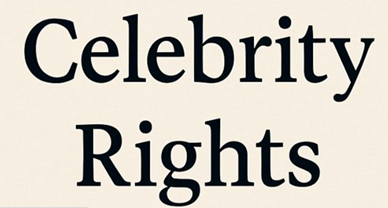IPR Related Ramifications in the Cyberspace
Development of cyberspace and its interplay with copyright law
Over the years, cyberspaces have undergone rapid development, thus playing a pivotal role in almost every aspect of society. The omnipresence of the internet in today’s world has opened the doors for several businesses and sectors to flourish at an expedited speed. Cyberspaces have allowed people to significantly improve the quality of their life. It paves the path to previously inaccessible services in an efficient manner and as a result, the internet has been one of the most important tools for the e-commerce sector. As per the Times of India, currently, the e-commerce sector is estimated at $4 billion. The interface between cyberspaces and the e-commerce industry often gives rise to several Intellectual Property related issues. Strong and enforced intellectual property is imperative for any business. Enforced IP rights indicate that the products or services are authentic and of a quality that consumers recognize and expect. Most often than not, it can get extremely arduous to regulate each and every platform on the internet. Due to the same reason, cyberspace can often become a breeding ground for IP infringement. Some of the most common types of IP infringements that occur in cyberspace include trademark, domain name, and copyright infringement. Unfortunately, legislation pertaining to cyberspace such as the IT Act does not explore IP-related issues such as cybersquatting or domain name infringement. However, several international conventions and treaties have emphasized the importance of protecting IP in cyberspace.
[Image Source: gettyimages]
Instances of copyright infringement in the cyberspace
Article 2 of the Berne convention defines “literary and artistic works” and other works in the literary, scientific, or artistic domain as copyrightable works. Copyright infringement occurs in cyberspace for various reasons. For one, it is relatively easy to replicate copyrighted works in cyberspace. Due to loopholes in copyright regimes, several people carry the perception that it is admissible to create replicas of copyrighted work for personal or private use. However, this results in a “chain of replication” of copyrighted work. Consequently, it becomes extremely difficult to trace the original owner of the copyrighted work. Creating unlimited copies of copyrighted works could lead to severe consequences. In most cases, duplicating copyrighted works on the internet may significantly disrupt the sales of works such as music, art, literary works, and computer programs. Unlike physical transmission of copyrighted works in cyberspace, such works can be easily transferred with the help of wireless channels to multiple users. This has also fueled the genesis of piracy. Piracy is an issue that plagues several sectors today. The literary, software, and entertainment sectors are the worst hit by acts of piracy. Copyrighted materials such as books, software, music, and films are illegally reproduced and are transmitted on a global level instantaneously.
Linking is yet another issue that contributes to copyright infringement in cyberspace. Linking permits a website user to browse through another website, without having to leave that particular website. In other words, a user can view a completely different web page by clicking on a word or an image from the webpage that the user was browsing through. However, this can often prove to be disadvantageous. Deep linking refers to the process wherein a link bypasses the home page and directly goes to the page within the linked site. Certain websites earn their income through the number of viewers who visit their homepage. Through linking, certain sites can lose their revenues since users may not directly land on the home page. Moreover, linking often provides the impression that one webpage is connected to another even if they don’t belong to the same class of goods or services. Deep linking can also facilitate the unauthorized dissemination of copyrighted works.
Domain name disputes in the cyberspace
A domain name can be referred to as a combination of typographic characters that are used to indicate the location of a particular space on the internet. In other words, the domain name is the identity of a website. A domain name plays a crucial role since companies are expected to create an online presence, which would in turn help flourish their business. A domain name essentially consists of three parts. Firstly, the letters ‘WWW indicates that the webpage is present on the World Wide Web. WWW is followed by the name of the site. This name should clearly indicate the name of the business or should consist of a term that is associated with your business. The name of the site is followed by .com or .in (in India). .com indicates that the domain name is a top-level domain within the domain name system of the internet. Whereas, .in implies that the business is registered in India. Domain names can be referred to as the “online trademark” of a company. Infringement related to domain names can result in domain name disputes. More specifically, domain name disputes occur when a domain name is used in a conflicting or in an unauthorized manner by an individual. Cybersquatting is yet another type of domain name infringement that occurs in cyberspace. Cybersquatting occurs when a domain name is used by an individual with no intention of carrying out any commercial activities pertaining to the business. Most commonly, cybersquatting is committed to extorting large sums of money from authorized users who would want to use the domain name that is unauthorizedly registered by the individual.
Trademark issues in the cyberspace
Keyword advertising trademark infringement is one of the most common issues that roots in the internet’s interface with trademarks. Keyword advertising trademark infringement occurs when search engines attempt to sell trademarked works and phrases to commercial entities that are in direct competition with the trademark owner. Often, this practice results in confusion among consumers. It is pertinent to note that, keyword advertising trademark infringement only applies to trademarked brand names or phrases that are specific to a brand. Generic terms related to the product do not fall under this category since it cannot be protected as a trademark.
Author: Sanjana, a BBA LLB student of Symbiosis Law School (Hyderabad), in case of any queries please contact/write back to IP And Legal Filings at support@ipandlegalfilings.com.




